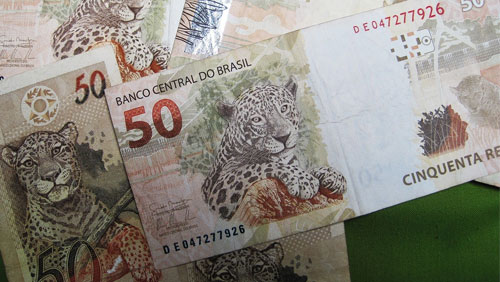The idea of expanded legalized gambling in Brazil has been floating around for decades, with the topic taking a more serious tone in the past couple of years. Several lawmakers have been supportive of the idea, and even the country’s president, Jair Bolsonaro, has not been completely against allowing casinos to start appearing – though he would prefer to allow individual states to make the decision. Sports  gambling has already gained enough support in the country, but legislative approval of casinos has proven to be more difficult. A new bill just drafted by a federal lawmaker hopes to succeed where others have failed.
gambling has already gained enough support in the country, but legislative approval of casinos has proven to be more difficult. A new bill just drafted by a federal lawmaker hopes to succeed where others have failed.
Alberto Neto, a Brazilian federal deputy serving the state of Amazonas, has submitted PL 585/2020, a bill that would allow casinos in his jurisdiction. Local media outlet Amazonas Atual reported on the bill, explaining that it would pave the way to better tourism in the area, as well as serve as a testbed for casino operations elsewhere in the country.
PL 585/2020 is also meant to overcome economic handicaps in Amazonas, shortcomings that keep the region underdeveloped. Neto believes that, with the dissolution of the Manaus Free Trade Zone (ZFM, for its Portuguese acronym), the economic impact to the region will be substantial, and that casinos can help prevent massive financial losses. He explains, “With the risk that the Manaus Free Trade Zone is nearing its end, compensatory measures are needed, more than ever, necessary. If the current government decides to remodel the ZFM, we must think about compensatory measures for our state.”
The bill would establish the Federal Revenue Services as the government entity responsible for overseeing casino licensing and controlling the industry. It doesn’t discuss the revenue or tax implications of legalized gambling, but covers what would happen if unauthorized casinos were found to be operating. Fines for violations would range from R$5,000 (US$972) to a maximum of R$1 million ($194,442).
Gambling was, at one point in Brazil’s history, legal. However, the conservative country banned the activity in 1946 as being “immoral,” but things change. As the country looks to boost its domestic revenue options, and as gambling takes center stage around the world, it has been brought back to the forefront of legislative conversations and has picked up more interest. It isn’t clear, though, if that interest is enough to push the legislation all the way through the political obstacle course. Neto’s bill reportedly now sits with Rodrigo Maia, the president of the Chamber of Deputies, who will determine whether or not to let it move forward.





